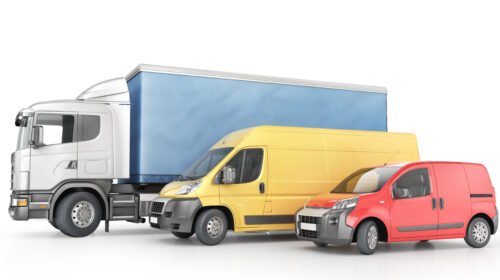Blog: Transportation: Should I Lease or Should I Buy?

By Ken May, Partner
Working with my transportation clients at Haefele Flanagan, I’m often asked, “Should I lease, or should I buy?” As with many business decisions, this is not a one-size-fits-all solution. My recommendation whether to lease or buy is based on the facts for each company.
Years ago, I had a client ask about the best approach for acquiring new vans for use in their operations. In preparing our analysis, we determined that from a cash flow perspective, purchasing outright was a better option than leasing, because tax savings in the year of purchase from bonus depreciation would be substantial. However, the ultimate decision was to lease the vehicles. But why?
After much consideration and based on history with their other vans, these are the factors that led management to their decision:
- Management wanted to be able to replace the vehicles every five years. After that point, mileage and wear began to cause more in-depth maintenance which increased downtime and decreased productivity.
- They believed that, under the terms of the lease, much of the risk associated with residual value was picked up by the lessor.
- They were not sure if their drivers would like the new vans.
- There were concerns that the new vehicles would not hold up under daily use as well as the make and model they had always driven.
- They wanted to “test the waters,” and leasing gave them an easy and pain-free exit strategy.
Once we went through the whole scenario from a holistic business approach, it was clear why it made sense to lease even though, in year one, the company had a financial incentive to purchase. Our decision ended up being correct; these vans did not meet the company’s needs and were phased out at the end of their lease.
As you think about your own needs, reference the chart below which shows some basic advantages and disadvantages of leased and purchased equipment:
| LEASING | BUYING | ||
| Advantages | Disadvantages | Advantages | Disadvantages |
| Lower Initial Cost | Higher Overall Cost (generally) | Lower Overall Cost (generally) | Higher Initial Cost |
| Flexible Term | No Ownership | Ownership | Risk of Obsolescence |
| Upgrade Cycle | Depreciation |
Before you lease or buy, ask a trusted advisor to help you analyze the situation. Remember, there may not be one obvious answer but by factoring all the relevant information, you can make an educated decision that best suits your company.
Next month, we will talk about bonus depreciation. What it is, why it is important, and will it be around?
About Ken May: Ken graduated from Drexel University in 2006 with his Bachelor of Science in Business Administration with a concentration in Accounting and Finance. He has eighteen years of diverse public accounting experience with Haefele Flanagan. He provides accounting and assurance, tax, consulting, and business valuation services to our clients. Ken’s industry exposure includes financing, manufacturing, distribution, transportation, construction, and healthcare industries. Ken lives in New Jersey and enjoys spending time with his wife, Ghazal, their son, and two parrots. Email: ken.may@hfco.com